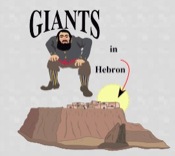
Psalm 19
The Bible Teaching Commentary
Journeying Closer to God
With a Study in Imagery
Paul J. Bucknell
Psalm 19:1-6 The Works of God is part 2/3 of Journeying Closer to God With a Study in Imagery which provides Biblical exposition of Psalm 19:1-6 with emphasis on the study of imagery and application.
Psalm 19 Intro/Imagery | Psalm 19:1-6 Works of God | Psalm 19:7-12 Word of God
The Works of God (Psalm 19:1-6)
Perceived by senses - General Revelation
 These two sections are like curtains pulled back beckoning us to step forward to explore what is hidden, disguised or just plain ignored. As part of a study, we would like to briefly introduce imagery in the Old Testament so that we can continue on with suggested projects for the study of Psalm 19.
These two sections are like curtains pulled back beckoning us to step forward to explore what is hidden, disguised or just plain ignored. As part of a study, we would like to briefly introduce imagery in the Old Testament so that we can continue on with suggested projects for the study of Psalm 19.
It is suggested that these Project Explore! sections are done before the extensive readings where the answers will be found.
Project Explore!
Let's begin each section with an exploration of what images David used to convey His thoughts. Read Psalm 19:1-6 and share what imagery is used. Explain:
(1) The image (symbol)
(2) What the image represents
(3) Explain why this image is helpful or appropriate
Psalm 19:1 The purpose of displaying the heavens
(For the choir director. A Psalm of David.) The heavens are telling of the glory of God; And their expanse is declaring the work of His hands. (Psalm 19:1)
The beginning of each psalm, such as Psalm 19, has a subtitle briefly describing appropriate information for the reader (or instrument player). Psalm 19 was written for a choir director and was meant to become a public song of worship. It also states that it was written by David, the shepherd boy, the king, the general and the man of God. His insight into drawing close to God can be found here in this psalm.
The power and glory of God's person is being displayed just as verse 1 says.  "The heavens are telling of the glory of God; And their expanse is declaring the work of His hands" (Psalms 19:1).
"The heavens are telling of the glory of God; And their expanse is declaring the work of His hands" (Psalms 19:1).
It is no secret. God put His works on a permanent display. In fact, if we think of it rightly, God built both the exhibition hall as well as the exhibition. The heavens, the vast empty space, has God's mighty works all poised and properly rotating about as in the best of displays.
It is nothing but the 'glory of God' being on display. God does not wear majestic robes but perhaps we could think of outer space as God's celestial robe. Through it we catch a picture of His awesome person. We use telescopes, satellites and other special equipment to catch special glimpses of this glory. If God displayed these things for us to better understand His greatness, then we must ponder on what He thinks of men who ignorantly claim it all happened by accident.
God does not have real hands as if He were human; He is spirit and therefore invisible (Colossians 1:15). "The work of His hands" is figurative language called anthropomorphism so that we can readily understand his point. We make things with our hands.
In Genesis God said, "Let there be …." The author does not amplify this point. It is sufficient that we recognize it was God's doing and no one else's. All the discoveries in our neighboring galaxies are His handiwork. Something so vast and magnificent done with simple hands? Yes, God's hands. This is because God is so awesome.
The word 'telling' of verse 1 is the root word for the Hebrew word for scribe, one who carefully enumerates what is the situation. Space itself is the recorder depicting its innumerable objects. We only see part of its fully glory, however.
"For the creation was subjected to futility, not of its own will, but because of Him who subjected it, in hope that the creation itself also will be set free from its slavery to corruption into the freedom of the glory of the children of God." (Romans 8:20-21).
We look at the heavens as space. God sees it differently. "And God called the expanse heaven" (Genesis 1:8). The same word here in Psalm 19:1 is used as in Genesis 1. Verse 1 uses a common Hebrew poetic style repeating the thought with slightly different description (parallelism).
Heaven is the same as expanse. Telling is parallel to the word 'declaring.' The 'glory of God' then is used to describe the 'work of His hands.' If God so carefully creates these things, and provides us with the ability to observe them, should we not be careful to give Him all the honor that is due His Name.
Application
We need to constantly fight the boring secular perspective that simply states the existence of nature. God, however, declares that it was deliberately made and there is a purpose for them. David answers the question, "Why did God display the heavens?"
They are not just existing as if there by accident. God made them to glorify His Name. How do you gaze at the heavens? What do you expect to see? How can this help you in your spiritual life?
Psalm 19:2 The message is constantly communicated to the world
"Day to day pours forth speech, and night to night reveals knowledge." (Psalm 19:2)
The psalmist has spoken about what God has displayed in verse 1 that would bring us to praise and exalt Him. In verse 2 he points to another aspect of God's creation, that is, its constant revelation. This verse answers the question, "When does God reveal His glory in the heavens?"
The great works constantly send out their messages (Is the message being sent out the same or different?), both during the day and night. Perpetual. Unceasing. 24/7. It is as if God's works are speaking (pours forth speech). There is a message. It is not senseless words or a random string of letters. Just like the messages that we send out into space in hope of having some alien detect it.
The message has meaning. It reveals knowledge. God is unleashing knowledge about His glorious self. It is a pity that most people call it nature for they miss the message.
The parallelism of day and night give a solid testimony about God's glorious person. His glorious person is revealed in such a way that makes man responsible to know about God. (View the cycle of decline)
"For since the creation of the world His invisible attributes, His eternal power and divine nature, have been clearly seen, being understood through what has been made, so that they are without excuse." (Romans 1:20).
Application
What is the message that is being communicated? How do you respond to this message?
Psalm 19:3-6 The message is easily communicated to the world
 3 There is no speech, nor are there words; Their voice is not heard. 4 Their line has gone out through all the earth, And their utterances to the end of the world. In them He has placed a tent for the sun, 5 Which is as a bridegroom coming out of his chamber; It rejoices as a strong man to run his course. 6 Its rising is from one end of the heavens, And its circuit to the other end of them; And there is nothing hidden from its heat. (Psalm 19:3-6)
Verses 19:3-6 answer the question, "Where does God reveal His knowledge through His creation?" The answer is everywhere and in that we see the power of God able to enter every part of the world He made.
 Although 19:2 speaks of speech being poured forth, verse 3 says there is no speech and words. The NIV would is clearer. "There is no speech or language where their voice is not heard." (Psalms 19:3, NIV). In other words, God's message has crossed every culture and broken every language barrier making everyone responsible to give reverence to God. His language of majestic glory and power has crossed every ethnic line and barrier.
Although 19:2 speaks of speech being poured forth, verse 3 says there is no speech and words. The NIV would is clearer. "There is no speech or language where their voice is not heard." (Psalms 19:3, NIV). In other words, God's message has crossed every culture and broken every language barrier making everyone responsible to give reverence to God. His language of majestic glory and power has crossed every ethnic line and barrier.
The evangelist can be sure that those unreached individuals have heard God 'speak' to them. And again, Romans 1:18-20 clearly testifies to the fact that God's Word has penetrated to every language group making everyone responsible to give reverence to God.
The implications of God speaking to everyone in the world demonstrate that God is concerned for the world. This is part of the subtle Old Testament message that comes dramatically alive in the New Covenant. Jesus sends His disciples to make disciples of all nations. Not only are all peoples made in God's image, they have heard God's voice ringing through His glorious creation.
What do they hear? God is awesome. God is a great Maker. God is a glorious designer. But many things they do not hear. This we need to read the Word of God (see the next section starting in 19:7).
Verses 5-6 elaborate this point. God's great works do reach all people all the time. The heavens are pictured as a tent holding the path of the sun. The use of tent obviously provides a special picture. A tent is inappropriately small to show off the greatness of God. God does not live in it. It is more like His toy box.
There are two images of the sun. First is the sunrise starting its path across the sky. The sun is likened to a bridegroom who has just been with his wife in the bedchamber. The sun bursts forth chasing the darkness away.
Second, there is the running competition. Here the sun is depicted as it sets. Think of the champion breaking the winning ribbon and so the sun sets with its splendid sky celebrating the day's journey. The sun begins its journey and completes it on the other side of the heavens.
The psalmist is writing from our earthly perspective. The sun rises in the East and sets in the West. We know the sun technically never sets from heaven's perspective. The earth is revolving around the sun. But the psalmist touches our own experience in the way God has touched his own. We all are touched by the path of the sun. In summary, if we have received advantage from the sun, then indeed we have heard God speak.
Application
If we are to bear benefit from the sun's heat, then we are responsible for the voice of God's marvelous creation. He has purposely made things awesome so that we would know about His greatness and glory. Have you responded back by acknowledging His glorious ways?
Train yourself to appropriately respond to special views of God's creation. When you see some aspect of God's works that impresses you, consciously say to God something like this, "Lord, you are great. You make wonderful things. You are wonderful. Thank you for allowing me to catch a view of your glorious being!" Defeat the stain of secularism by again linking the truth of what you see to your thoughts! This is true praise.
Next ->The Word of God (Psalm 19:7-12)







